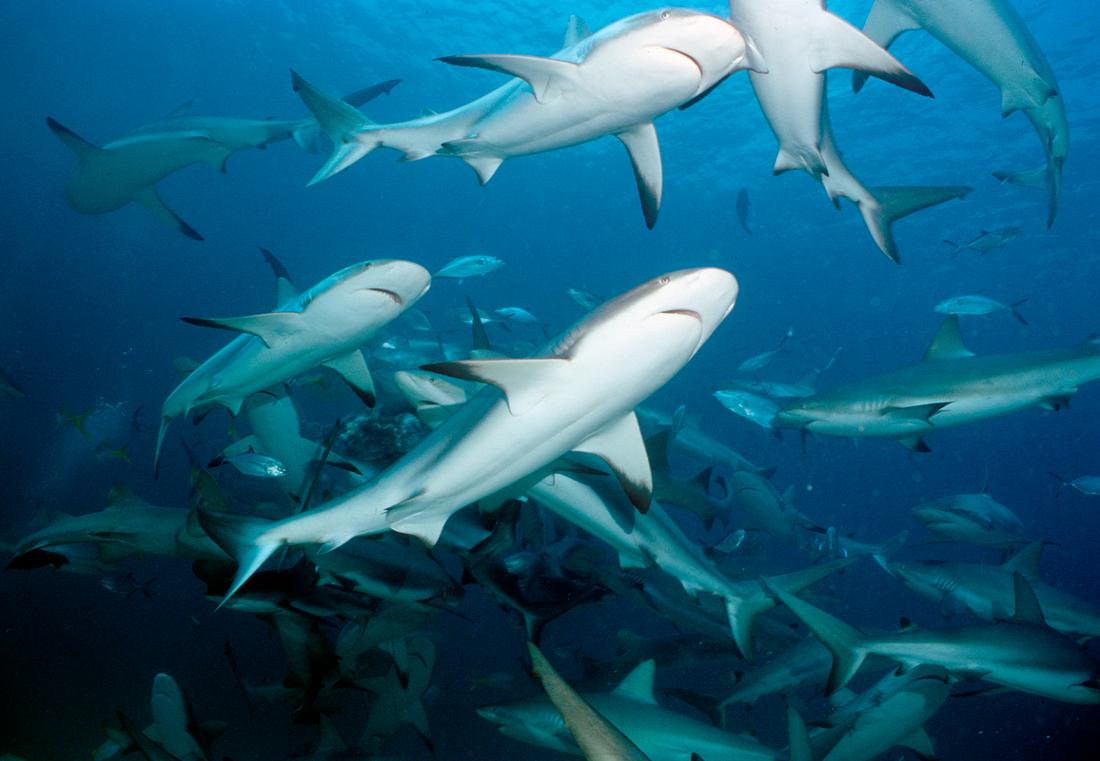Florida Governor Ron DeSantis has signed into law the bill that bans the importation of shark fins into Florida and closes loopholes that enabled the illegal shark fin trade.
The Kristin Jacobs Ocean Conservation Act, named after the late Rep. Kristin Jacobs, was introduced in late 2019 and approved by the House and Senate in March. Rep. Jacobs co-spearheaded the legislation with support from the Guy Harvey Ocean Foundation (GHOF), Shark Allies and Senate bill sponsor Sen. Travis Huston (R-Palm Coast).
“Prohibiting the importation of shark fins into Florida is a tremendous first step in protecting global shark populations. Until now, Florida’s airports and seaports were the main thoroughfare for illegal fins from the Caribbean and Central America,” said Guy Harvey, chairman of the GHOF. “We appreciate the efforts of Rep. Jacobs and wish she were here with us to see the results of her diligent work. We also thank the governor for his support and will continue to push this legislation nationally.”
This is a monumental victory for shark conservation advocates in North America since Florida is currently the number one hub for the sale, import and transport of ill-gotten shark fins. Researchers from Nova Southeastern University’s (NSU) Guy Harvey Research Institute (GHRI) determined that fins from upward of 73 million sharks end up in the global market annually. The high demand for shark fins in Asia fuels the global shark fin trade, with a large portion of the fins harvested illegally.
”I am grateful that the Kristin Jacobs Ocean Conservation Act is now a part of Florida law and moves our state in the right direction of putting an end to the ecologically harmful and morally repugnant practice of illegal shark finning,” said Senator Hutson.
The law finally puts an end to a long list of regulations and loopholes that prevented the proper enforcement of the Florida shark finning ban, which was implemented in 2012. These loopholes allowed Florida ports to become a major hub for the transport of illegal shark fins to China and other Asian countries where the price for shark fins exceeds normal market prices.
“State fin bans have paved the way to make a campaign for a national fin ban a possibility,” says Stefanie Brendl, executive director of Shark Allies. “And the state of Florida has been a key component of a movement towards ending the fin trade in the U.S. While a nationwide ban is the ultimate goal, it is uncertain when that will become a reality, and whether that effort will have to come with exemptions and concessions, as most federal acts do. Having state AND federal legislation in place assures that sharks receive protection sooner, rather than later. There simply is no reason why Florida ports needed to keep allowing fin shipments in hopes that national legislation would eventually fix the problem. Local action matters. It is the pathway to national action.”


